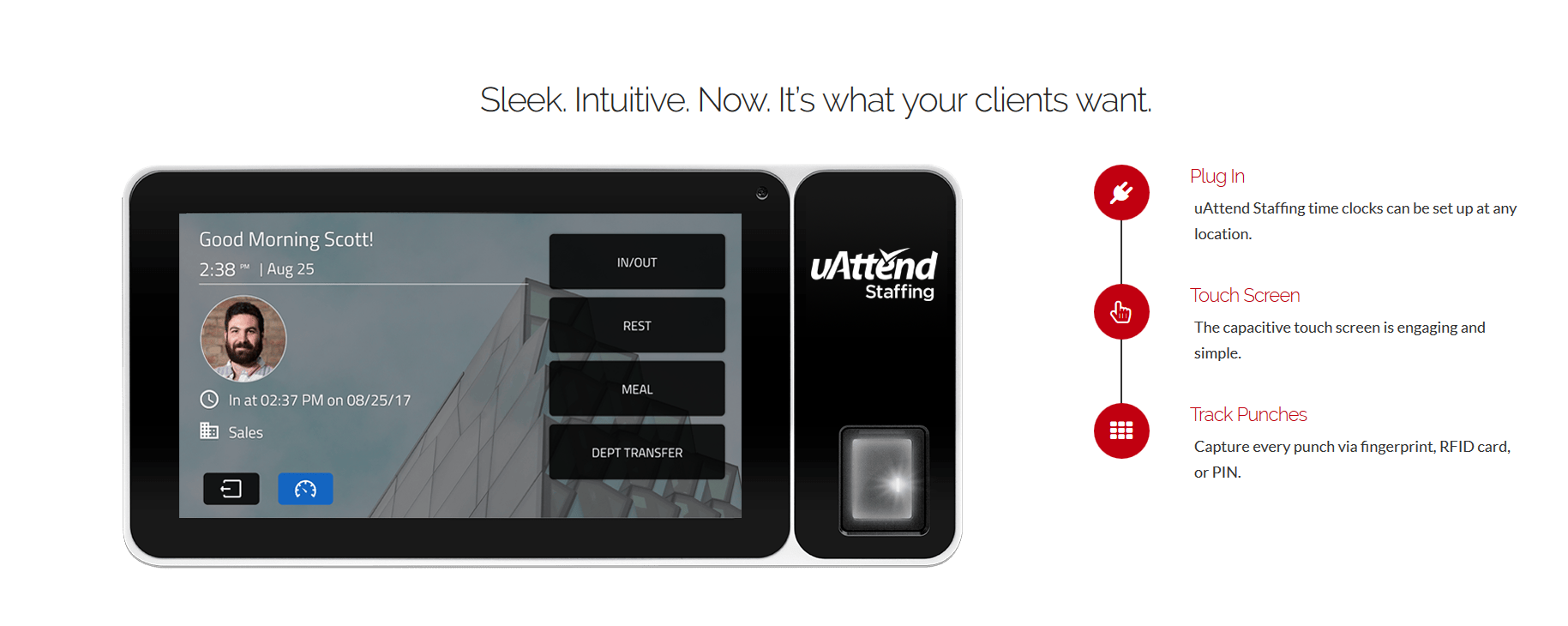

We understand this may sound extreme or ridiculous, but the point is that it’s your responsibility to do your due diligence to ensure that employees are not working off the clock. Limit access to work areas, software, and materials, or prevent access to the building itself in order to ensure that employees are unable to work off the clock. If you intend to lock your employees out of your timekeeping system in order to prevent them from working outside of your standard work schedule, you also need to lock them out of their workspace in order to prevent them from working off the clock.
UATTEND CLOCK IN PLUS
And that’s not even including potential overtime payments, plus the fines, fees, penalties, and attorneys’ fees that will be added to your total financial liability for letting the oversight go to court.Īnd what about all that work the employees did before being clocked in or after being clocked out? Your office computer systems, timestamps on emails, video surveillance at your office, and the existence of a system that prevents employees from clocking in will all be used as evidence against your business in court. If just four employees came forward to complain about 30 minutes of daily unpaid wages, you would be obligated to pay 400-hours-worth of wages in a single lump sum. And if other employees are similarly affected, you can multiply again by the total number of affected employees. If they also work fifteen minutes after they are clocked out each day, you can double that figure. If just one employee begins working fifteen minutes before they are able to clock in each day, you’re looking at a potential wage claim of around fifty hours for a single employee after a year of work (0.25 hours x 4 days a week x 50 weeks). If an employee arrives at your office before they can clock in, there’s a good chance that they will still want to get a jump on their daily duties. Preventing an employee from clocking in is not the same as preventing them from working. Further, accurate recordkeeping is also your legal obligation.īut how does this apply to employers who prevent their employees from clocking in before a certain time, then automatically clock them out at the end of a workday? For starters, records indicating that all of your employees are clocking in and out at exactly the same time each day are not going to look good for you in a case related to unpaid wages. Though it can be tedious without access to the right tools, keeping accurate records of your payroll information and the time your employees spend working is the only way to ensure you come out of such an audit without a serious financial liability. It’s also entirely possible for you to get a randomized audit as well. they must remain on the clock until their work is complete.Īll it takes to trigger an audit by the Department of Labor or the IRS is a single wage and hour complaint by an employee or former employee. If an employee is still performing job duties - working with patients, filing, cleaning or closing down their workstations, etc. The same can be said when employees are automatically clocked out at the end of a workday. If the employee is locked out of your timekeeping system until they are “allowed” to clock in but get started on work duties anyway, that employee’s activity is not only going undetected and unpaid, it is also building a wage and hour claim against your business for unpaid wages, whether they or you realize it or not. you are legally obligated to pay that employee for their time. If an employee shows up to the office early and starts working - logging in to your system or computers, checking work-related emails, preparing her work station, etc. If you pay your employees on an hourly basis (or if you pay any non-exempt employees on a salary basis), the Fair Labor Standards Act states that those employees must be paid for any time that they spend performing the duties of their job. If a non-exempt employee is working, they have to be paid for it. preventing employees from clocking in early and automatically clocking them out at the end of the day, or even for lunch, can also cause problems for your business.

But there’s another timekeeping conundrum that affects even more private medical and dental practices across the U.S. We recently ran a blog post about how automatically clocking your employees out for breaks can leave your business vulnerable to potential employment litigation.


 0 kommentar(er)
0 kommentar(er)
